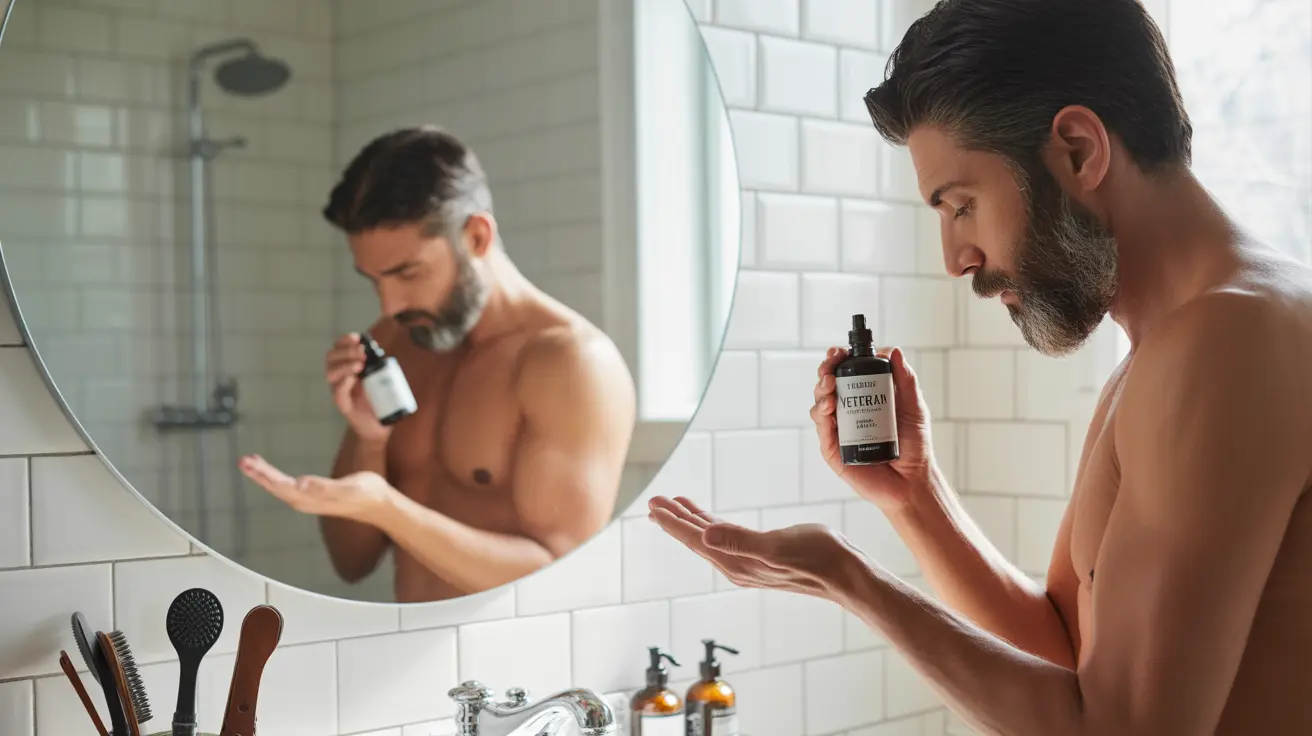For many men, growing a full, healthy beard is a significant goal that can enhance their appearance and boost confidence. While genetics play a crucial role in facial hair growth, several evidence-based strategies can help optimize your beard-growing potential. This comprehensive guide explores proven methods to support facial hair growth and maintain healthy facial hair.
Understanding Facial Hair Growth Biology
Facial hair growth is primarily influenced by hormones, particularly dihydrotestosterone (DHT), a derivative of testosterone. Your genetic makeup determines both your hair follicle sensitivity to these hormones and your overall growth pattern. While you can't change your genetics, you can create optimal conditions for the facial hair growth you're genetically capable of achieving.
Nutrition and Supplementation for Better Beard Growth
A balanced diet rich in specific nutrients can significantly impact your facial hair growth potential. Key nutrients include:
- Biotin (Vitamin B7)
- Vitamins A, C, and E
- Zinc and Iron
- Protein
- Omega-3 fatty acids
Focus on incorporating foods like eggs, nuts, leafy greens, fish, and lean meats into your diet. These provide the building blocks necessary for healthy hair growth and maintenance.
Lifestyle Factors That Impact Facial Hair Growth
Sleep and Stress Management
Quality sleep and stress reduction are crucial for optimal hormone production, including testosterone. Aim for 7-9 hours of sleep per night and incorporate stress-management techniques like meditation or regular exercise into your routine.
Exercise and Physical Activity
Regular exercise, particularly strength training and high-intensity interval training (HIIT), can naturally boost testosterone levels. This hormonal optimization can potentially improve facial hair growth over time.
Grooming Practices and Maintenance
Proper Cleansing and Moisturizing
Maintain a clean, well-moisturized face to support healthy hair follicles. Use gentle cleansers and natural moisturizers to prevent skin irritation and promote optimal growth conditions.
Exfoliation and Massage
Regular gentle exfoliation can help remove dead skin cells and potentially stimulate blood flow to hair follicles. Combined with facial massage, these practices may help create better conditions for growth.
Medical Interventions and Treatments
For those seeking additional support, several medical treatments have shown promise in promoting facial hair growth:
- Minoxidil applications
- Microneedling treatments
- Peptide-based products
- Medical-grade supplements
Always consult with a healthcare provider before starting any medical intervention for facial hair growth.
Frequently Asked Questions
- What lifestyle changes can help me grow facial hair faster and thicker?
Focus on getting adequate sleep (7-9 hours), managing stress levels, maintaining regular exercise, and following a nutrient-rich diet. These factors optimize hormone levels and create the best conditions for facial hair growth.
- Which vitamins and foods are best for promoting healthy beard growth?
Key nutrients include biotin, vitamins A, C, and E, zinc, iron, and protein. Foods like eggs, nuts, leafy greens, fish, and lean meats are excellent choices for supporting facial hair growth.
- Does shaving frequently make facial hair grow back thicker or faster?
This is a myth. Shaving doesn't affect hair thickness or growth rate. It only creates the temporary appearance of thicker hair due to the blunt ends created by shaving.
- How does stress, sleep, and exercise affect facial hair growth?
These factors significantly impact hormone levels, particularly testosterone. Poor sleep and high stress can negatively affect hair growth, while regular exercise can boost testosterone levels and potentially improve facial hair growth.
- Are treatments like microneedling or minoxidil effective for improving beard growth?
Both treatments have shown promise in clinical studies. Minoxidil can stimulate hair growth in some men, while microneedling may improve product absorption and stimulate blood flow to hair follicles. However, results vary by individual, and consultation with a healthcare provider is recommended before starting these treatments.




